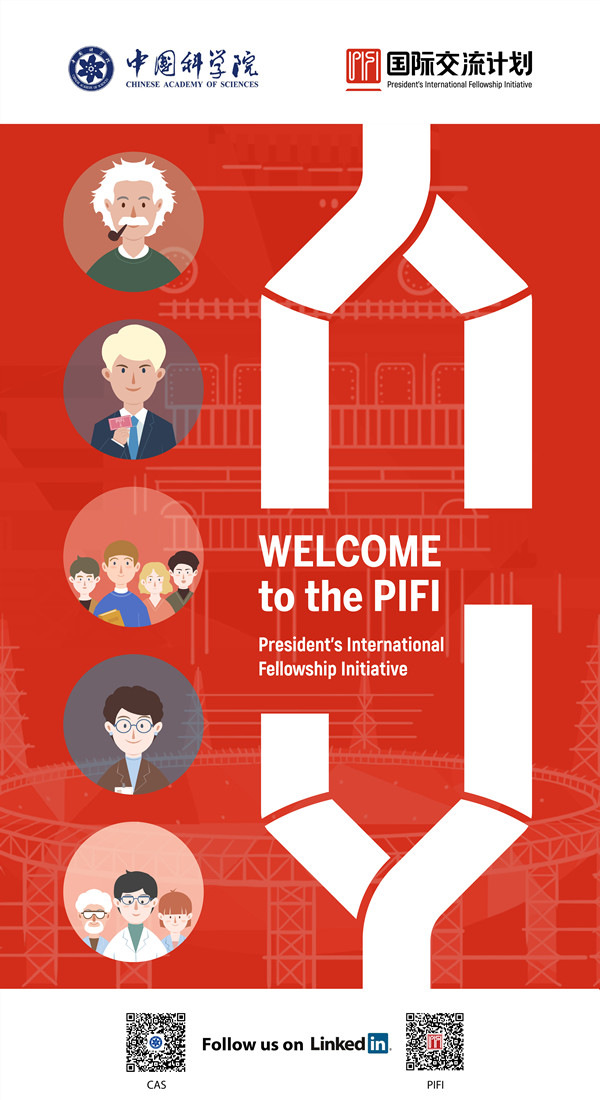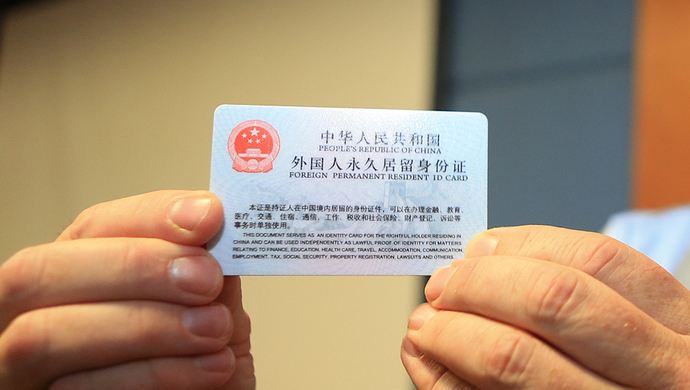

Viruses, unfortunately, do not pay mind to national borders. This global pandemic has put the entire world at risk. Citizens of every country around the world have to take initiative in combating the coronavirus. The Chinese Government has taken action to protect all of its residents, including foreigners. Since the initial emergence of COVID-19, China has carefully protected its people’s rights and interests in accordance with national law. Recently, as the efforts and precautions required for stopping and regulating the outbreak in China have been continually strengthened and increased, the Regional Immigration Administration has been compiling and determining relevant legal requirements and stipulations related to foreigners' rights pertaining to epidemic prevention and control in China. All foreigners in China are required to adhere strictly to the laws and regulations and collaborate effectively when measures are taken to avoid the risks posed by the disease, for the sake of their own health and safety and that of others.

Under the Constitution of the People's Republic of China, and the People's Republic of China's Exit and Entry Administration Code, legislation shall protect the lawful rights and interests of foreigners in China. Expats residing in China shall follow Chinese law, and shall not endanger China’s national security, hinder public interests and cause disruptions in social and public order. Below you will find several pieces of Chinese legislation (translated into English) that will enlighten you about China’s laws regarding emergencies, resident expatriates, and the changing climate of the region and world due to COVID-19.
From the Constitution of the People's Republic of China
The People's Republic of China safeguards foreigners ' lawful rights and interests within Chinese territory; foreigners within Chinese territory shall comply with the laws of the People's Republic of China. ...
The law shall protect the legitimate rights and interests of foreigners in China. Foreigners in China shall comply with Chinese law and shall not jeopardize the national security of China, hinder public interests, and threaten civil and public order.
According to the People's Republic of China's Exit and Entry Administration law, foreigners in China must register their address of residence on time and adhere with the processes and procedures of public security departments for inspection. Furthermore, in compliance with the People's Republic of China's Law on the Prevention and Treatment of Infectious Diseases, and the People's Republic of China's Frontier Health and Quarantine Law and the Regulations on Preparedness for and Response to Emerging Public Health Threats, foreigners in China shall cooperate with the People's Governments at all levels and with related departments in China when they take monitoring, isolation as well as other measures for effective prevention and control of the spread of infectious diseases and protection of public safety and health.

Exit and Entry Administration Law of the People’s Republic of China
Article 38Foreigners over the age of 16 who are living or residing in China shall carry their passports, other international travel documents, or residency permits with them and allow inspection of public security departments.
Foreigners living in China shall, within the prescribed time frame, provide residence permits to be inspected by the local government agency in their region of residence.
Article 39
When foreigners stay in hotels in China, the hotels must register their accommodation in compliance with the regulations on the hotel industry's public security administration, and apply accommodation registration information for foreigners to the public security departments in the areas where the hotels are situated. For foreigners living or staying in domiciles other than hotels, they or the people hosting them must, within 24 hours of the entry of the foreigners, go through the formalities of registration with the public security institutions in the places of residence.
Law of the People’s Republic of China on Prevention and Treatment of Infectious Diseases
Article 39
The Chinese government may keep people who have been in close contact with patients, pathogen carriers or potential patients in government services under careful supervision at designated locations and take other required preventive measures. In regards to people who refuse treatment in isolation or break away from treatment in isolation without consent before the expiry of the time of isolation, public safety institutions may support the medical services by taking mandatory preventive steps in isolation ...Article 41
Regarding the locations where there are cases of infectious diseases under Class A or the individuals in the special areas within such places, isolation precautions may be taken by the local people's governments at or above the county level where the above sites are situated...
A person with a quarantinable infectious disease shall be put in isolation by the territorial health and quarantine office for a period defined by the findings of the medical examination, while a person suspected of having a quarantinable infectious disease shall be held for observation for a time decided by that disease's incubation period.
Due to the developing threat, patients, suspected patients or individuals in close contact with infectious disease victims, who are required to be excluded for medical treatment, or subject to medical examination, shall be compliant when measures are taken by the competent health departments or related establishments. When they refuse to do so, the departments of public security shall help in taking these actions according to the law.

A person committing one of the following acts shall be detained for not less than 5 days but not more than 10 days and may also be fined for not more than 500 yuan; and where the circumstances are relatively minor, he shall be detained for not more than 5 days or fined for not more than 500 yuan:
(1) Intentionally disrupting public order by spreading rumours, making false announcements about dangerous situations and epidemics, or raising false alarms or acts of that nature; ......
Article 50
A person who commits one of the following acts shall be warned or fined not more than 200 yuan; and if the circumstances are serious, he shall be detained not less than 5 days but not more than 10 days, and fined no more than 500 yuan:
(1) refusing to carry out the decision or order issued according to law by the people’s government in a state of emergency;
(2) obstructing the staff member of a government department from performing his duties according to law......
Anyone commits vandalism, breaches dikes, causes explosions, spreads infectious disease pathogen, toxic or hazardous agents or other substances, or uses other harmful ways to jeopardize public safety, but does not cause serious repercussions, shall be sentenced to imprisonment for a term of not less than three years but no more than ten years.
Article 115 【arson, crime of breaching a dike, crime of causing explosion, crime of spreading poison and crimes against public security by other dangerous means】
Whoever commits vandalism, breaches dikes, causes fires or explosions, spreads infectious disease, toxic or hazardous agents or other substances, or uses other harmful means to inflict serious injury or death on persons or cause heavy damage to public or private property, shall be sentenced to imprisonment for a term of not less than 10 years, life imprisonment or death. Anyone who negligently performs the crimes in the preceding paragraph shall be sentenced to not less than three years of imprisonment for a term not exceeding seven years; or not more than three years of imprisonment or statutory detention where the circumstances are relatively minor.
Article 277 【crime of disrupting public service 】
Whoever, by aggression or intimidation, obstructs a State department official from conducting its duties in accordance with the law shall be sentenced to imprisonment for a term not exceeding 3 years, imprisonment, or public monitoring, or fined. ...... Whoever obstructs, by violence or intimidation, employees of the Red Cross Society, in the event of natural calamities or crises, from performing their duties and obligations under the law shall be punished in accordance with the provisions of the first paragraph.
Article 330 【crime of impairing infectious disease prevention】
Anyone who performs any of the following acts in breach of the provisions of the Law on the Prevention and Treatment of Infectious Diseases and thus induces the spread or serious danger of the transmission of an A-Class infectious disease shall be sentenced to imprisonment for a term not exceeding three years or to penal detention; If the effects of one’s actions are particularly serious, he or she shall be sentenced to imprisonment for a term not less than three years but not more than seven years ...... (4) failure to enforce the prevention and control measures recommended by health and anti-epidemic organizations under the Infectious Disease Prevention and Treatment Act.
Article 332 【crime of obstructing frontier health and quarantine】
Anyone, in breach of the public safety and quarantine laws, induces the dissemination or serious danger of transmitting a quarantinable infectious disease shall be sentenced to imprisonment for a term not exceeding 3 years or criminal arrest, and shall also, or shall only be fined.
According to the People's Republic of China's Exit and Entry Administration law, where foreigners breach China's laws or regulations, the public security body shall take decisions include invalidating, canceling or confiscating their visas or other papers, requiring them to exit China within a time limit, repatriating or deporting them in compliance with the circumstances of their infringement. Repatriated foreigners are not allowed to enter China for a period of one to five years, estimated from the repatriation date. Deported foreigners are not allowed to enter China within 10 years of the deportation date decided.
Under any of the following circumstances, foreigners may be repatriated: (1) be ordered to leave China within a prescribed time period but refuse to do so; (2) be engaged in situations in which they are not permitted to enter China; (3) live or work illegally in China; or (4) be repatriated for violations of this Act or other laws or administrative regulations .......Repatriated people shall not be permitted to enter China for 1 to 5 years, measured from the repatriation date.
Article 67
In situations where the exit / entry papers, such as visas or residence permits for foreigners, are destroyed, lost or stolen, or where the holders are found not entitled to be issued such documents after the issuance of such documents, the issuing authority shall declare the aforesaid documents invalid. Records copying, modifying, obtaining by fraudulent means or declared void by authorizing authorities are invalid. Public security agencies may cancel or confiscate the exit / entry documents provided in the preceding paragraph, or use them fraudulently by individuals other than the stated holders.
Article 81
Where foreigners engage in activities that do not conform to the intent of their residency, or otherwise breach China's laws or regulations that make them no longer entitled to live or remain in China, they may be ordered to leave China within a time limit. Where violation of this law by a foreigner is serious but does not constitute a crime, they may be detained by the Ministry of Public Security. The Ministry of Public Security's decision on a fine shall be final. Deported foreigners are not allowed to enter China within 10 years of the deportation date decided.
Reach out to us with any questions!
If you have any questions about what any of these Chinese laws mean for you as a foreign expat living in China, please reach out to us at service@chinajobsdaily.com.









 京公网安备 11011202001511号
京公网安备 11011202001511号